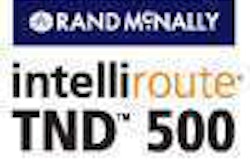The Port of Long Beach and the American Trucking Associations settled a lawsuit brought by ATA, resolving the final legal challenge to the port’s year-old Clean Trucks Program. “This is a critical milestone for the program, reaching consensus with an important industry partner,” says Nick Sramek, president of the Long Beach Board of Harbor Commissioners. “With this settlement, the Port of Long Beach and the ATA have agreed to move forward, together, on a Clean Trucks Program that works to safeguard the environment while contributing to economic growth and jobs.”
Long Beach’s Clean Trucks Program requires trucks moving cargo in and out of the port to meet strict 2007 federal emissions standards by 2012. After the initiative was launched in October 2008, ATA filed a lawsuit challenging the program’s concession agreement that mandated various fees, designated routes, restricted parking and required driver health insurance, among other stipulations.
With the settlement, the port replaced the concession agreement with a registration agreement in which trucking companies will register their trucks in the port’s Drayage Truck Registry and equip them with radio frequency identification (RFID) tags. Similarly, motor carriers will acknowledge responsibility for ensuring that all drivers possess a valid commercial driver’s license and a Transportation Worker Identification Card (TWIC). The registration also authorizes the port to gain access to the Intermodal Association of North America’s virtually real-time database to ensure that motor carriers have appropriate insurance coverage.
“ATA has always strongly supported the environmental objectives of the port and supports strict compliance with and adherence to all safety and security laws and regulations,” says Bill Graves, ATA president and chief executive officer. “We never disagreed with (Long Beach’s) objectives, only with certain provisions of the concession agreement which we believed were unnecessary for the accomplishment of those objectives.”










